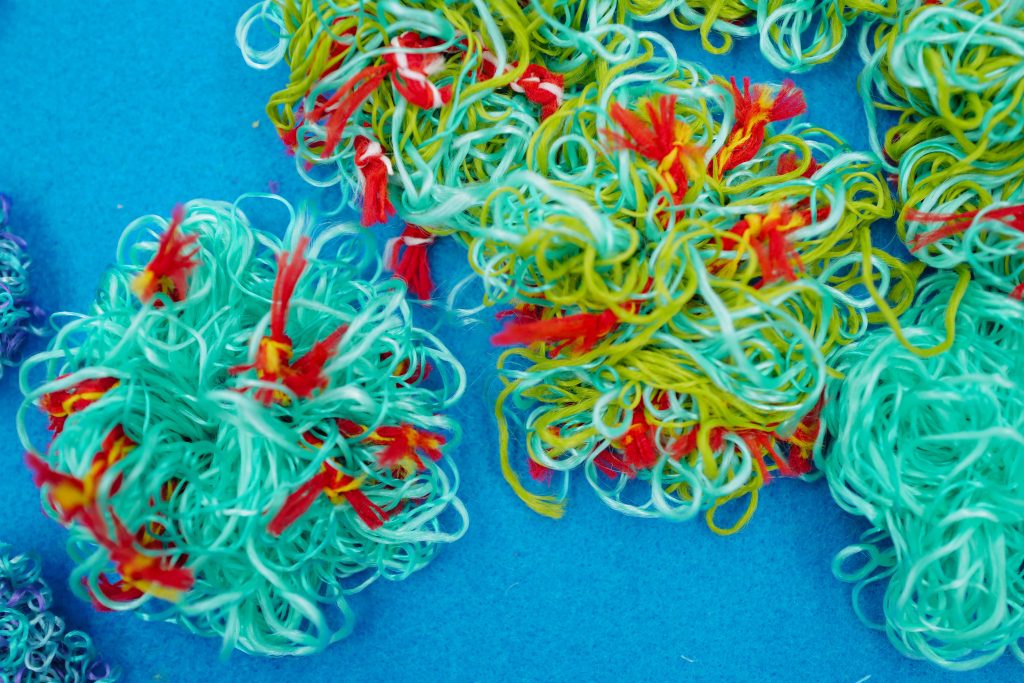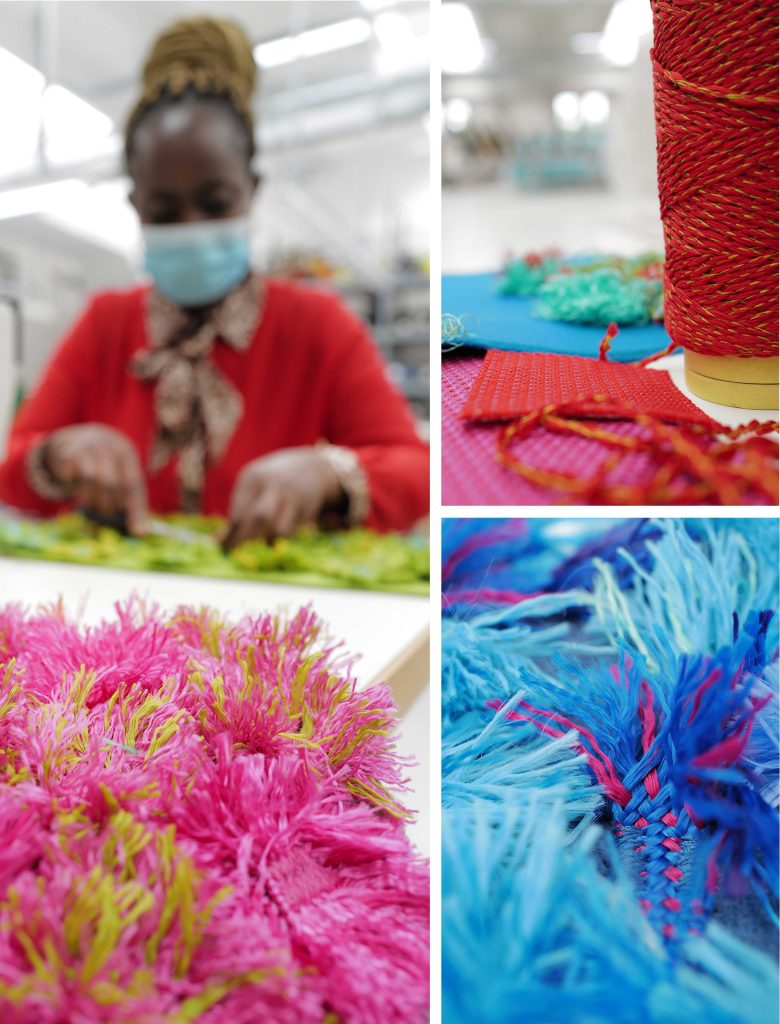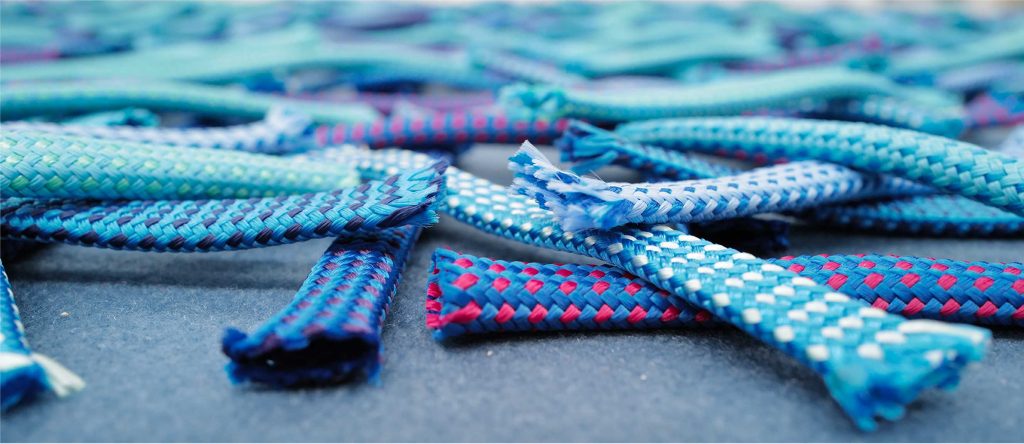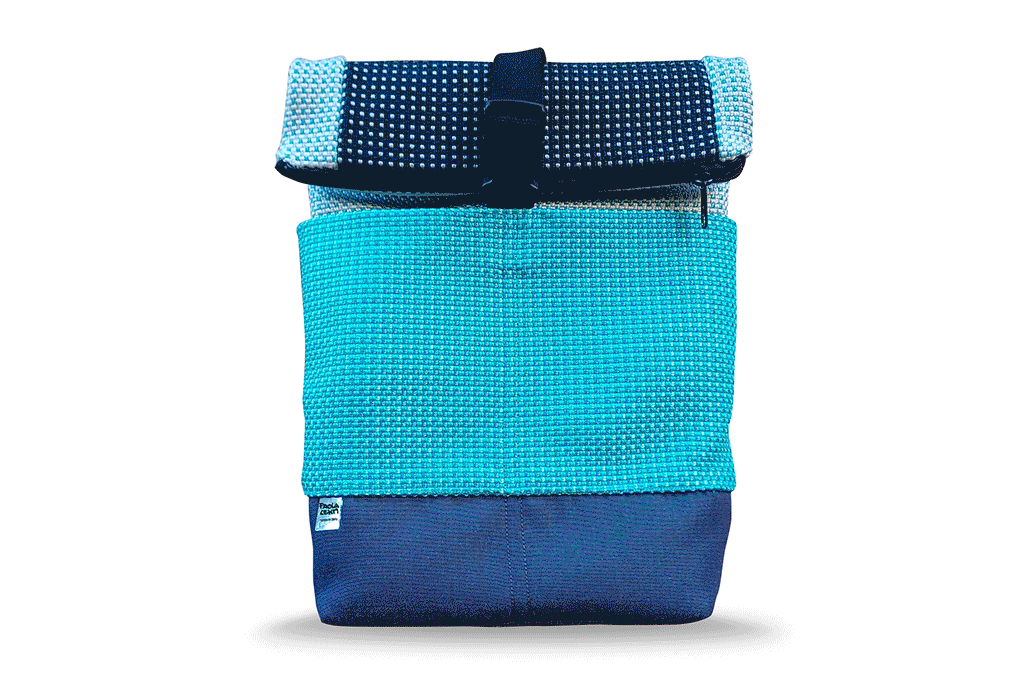On the hills of Como, where the city offers a view of the lake from above, there is a social tailoring workshop where accessories are sewn – bags, backpacks, but also dresses, trousers, and blazers – and stories and relationships of people who came from afar, fleeing poverty and war, are sewn up. “Torn” stories that need care, attention, listening: in need, in fact, to be re-sewn.
CouLture Migrante – this is the name of the tailoring atelier – does it with needle and thread, with machines running fast on offcuts and remnants to give shape to accessories entirely crafted by hand, unique because different from one another. And meanwhile, it reconstructs broken identities and restores their dignity through work.
video © Maurizio Natta
Some of these stories intertwined with Paola Lenti company’s that, since its inception, has set itself the goal of combining business and ethics and to pursue a virtuous model that would enhance quality but even before people. A model that would preserve the environment, reduce waste, and give value to what others would discard.
This vision has a lot in common with that of the social atelier in Como, established in 2019 with the aim of promoting qualified vocational training for people at risk of social exclusion, such as migrants, and accompanying them on a path preparatory to professional integration, teaching them to produce high-quality tailoring products from recycled fabrics from the local chain of Como. Here is the common thread connecting the two realities: a thread that sews and gives new life to fabrics and stories.
The collaboration with CouLture Migrante started in 2022 when Paola Lenti proposed to Fernando and Humberto Campana – the Brazilian designers famous for their creations crafted with poor or waste materials – to conceive together a collection that would exclusively use the processing remnants of the company. The desire was to give life to a project based on sustainability and respect for the environment but also ethics, inclusion, and, not last, social responsibility. During the design phases, the idea arose to entrust the crafting of the textile components of the collection – named Metamorfosi – to people in situations of marginality but with experience in sewing and tailoring. Hence, Paola Lenti looked for a local craftsmanship reality that would commit to the same values shared with the designers and with which to “weave” an unprecedented alliance. And the thread led to Como.

When kindred sensibilities converge, as exemplified by Paola Lenti and CouLture Migrante, a synergy unfolds, painting new and unexpected landscapes.
Victoria and Saly Samba, hailing from Ghana and Senegal respectively, have been warmly embraced by the company. Guided by skilled tailors and artisans nurtured in the workshops of Meda, they embarked on a six-month training journey, aspiring to achieve professional independence. During that period, they acquainted themselves with the intricacies of fabrics, yarns, and cords, unveiling their unforeseen possibilities. Through a simple crochet technique, the core of a cord, when opened up and “ruffled,” transforms into a textile seaweed, imparting a unique character to the seating series envisioned by the Campana Brothers. A collection that also bears the imprint of diverse cultures, vibrant and overflowing with colours.

Today, the collaboration with CouLture Migrante is enhanced by further meaning. Paola Lenti has asked the atelier to produce the “Backpack CM” – the flagship product of the atelier’s accessories collection – exclusively using the materials of the company. Fabrics with different colours, weight, and thickness, originally aimed to upholster outdoor and indoor furnishings, have been transformed this way into unique accessories, not only because they are different from one another. Also, in this case, the “raw material” consists of the remnants of previous processing, while the hands that shape the backpacks are those of the people that CouLture Migrante has welcomed, trained, and then employed in their own atelier.

“Working with remnants and surplus offcuts of fabrics, each different from one other, is an art,” says Chiara Gismondi, responsible for the social tailoring atelier in Como. “It’s very challenging, both at a creative and meaning level. The ambition is to become a best practice that is an example for other realities and to be able to create, along with beautiful sustainable products, a new social fabric.”

The first backpacks tailored by CouLture Migrante will be gifted to architects, designers, and journalists of the sector on the occasion of an event that will take place in the flagship store Paola Lenti in Miami during the next edition of Art Basel Miami. Saly Samba and Victoria are giving the finishing touches to the pieces departing for Florida, while Chieck – called Zé – from Gambia, employed by CouLture Migrante and now a true master in the tailoring art, makes the remnants slide quickly under the needle of the sewing machine, to a rhythm that resonates like music. Actually today, also life stories are being re-sewn: his own, Saly Samba’s, employed part-time at Paola Lenti, and Victoria’s, that will soon be employed in the tailoring department of a silk factory in Como. It is another circle that closes; or rather, it opens to generate shared value.

